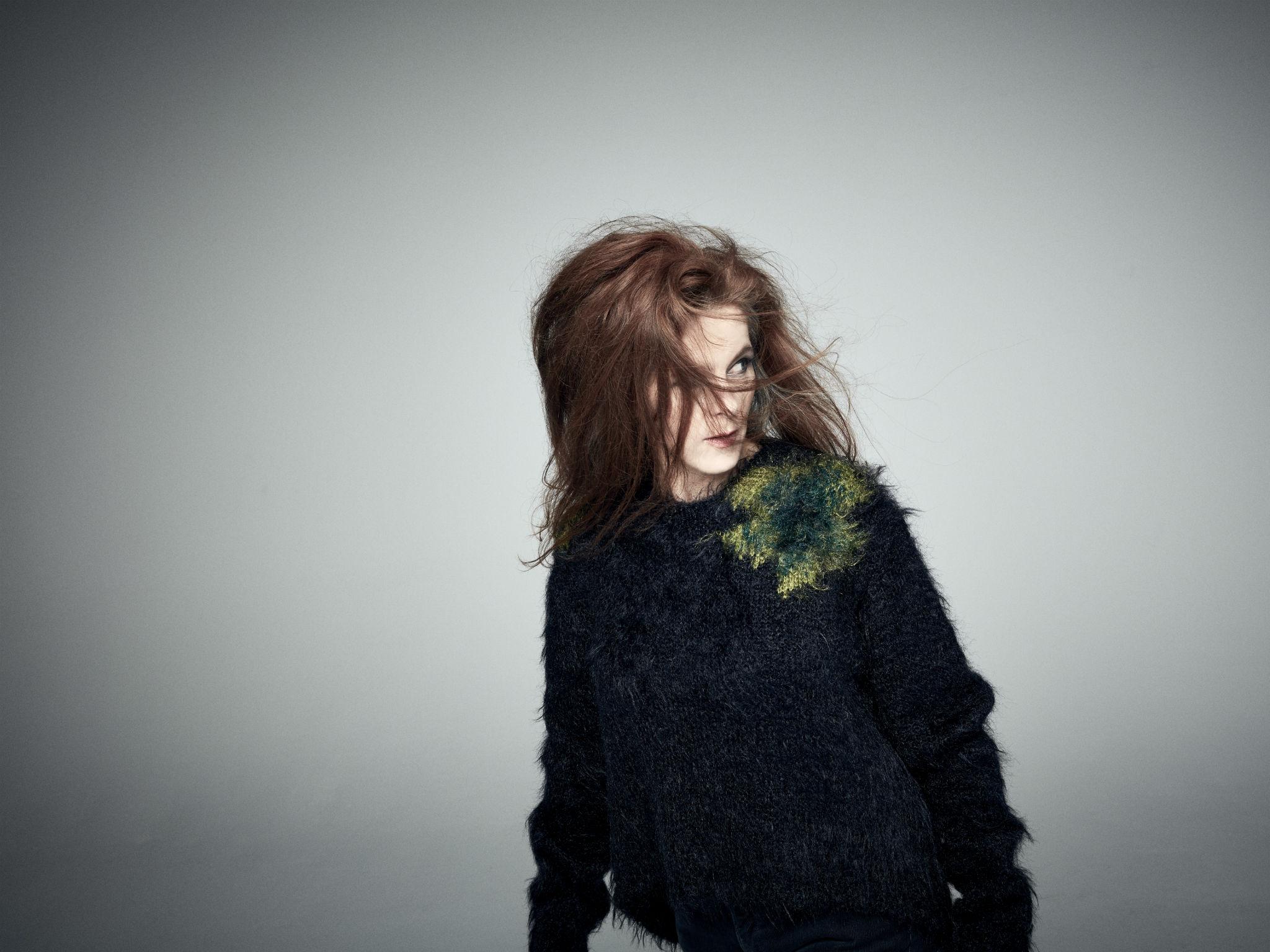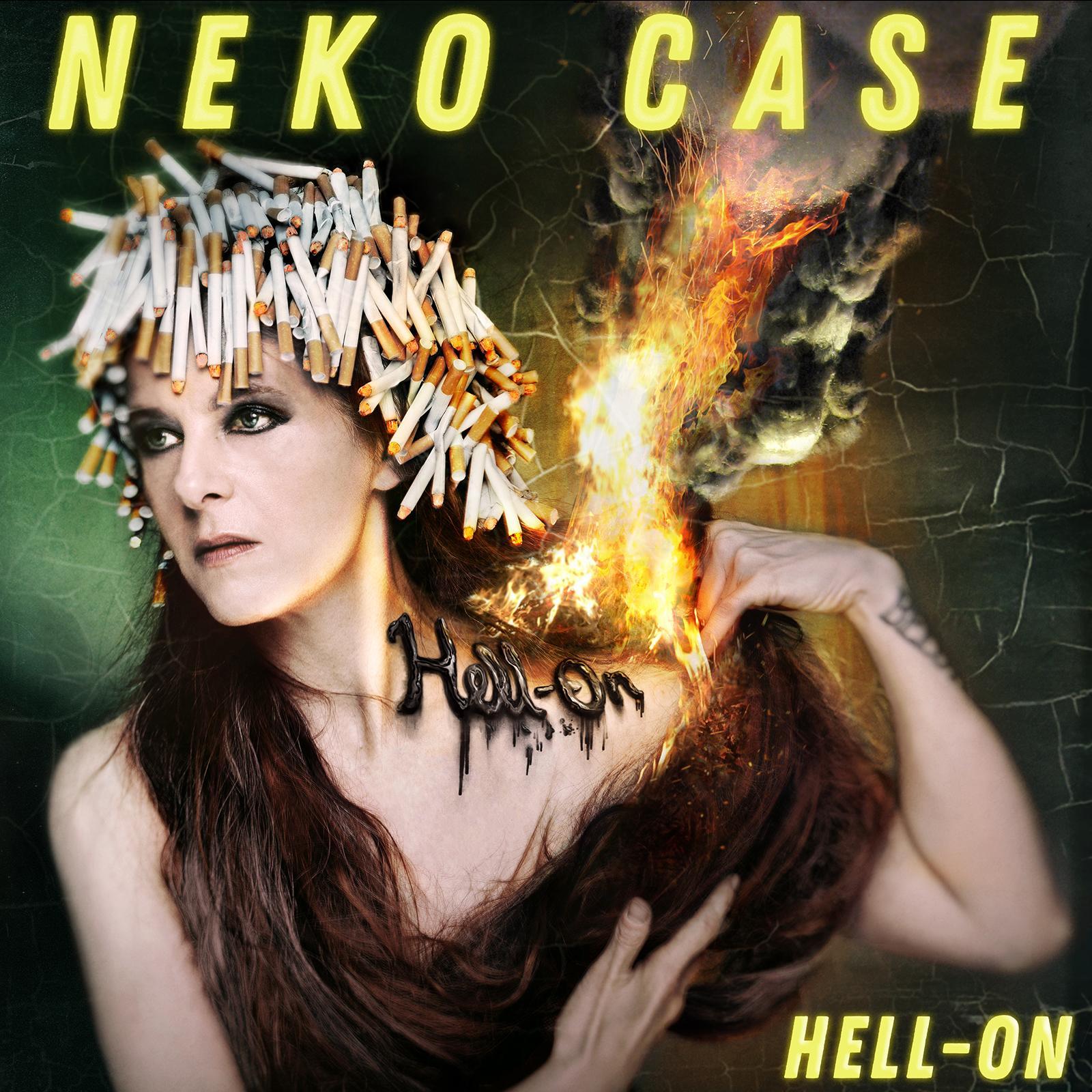'When nature burns your house down, you can’t take it personally': Neko Case on fighting fires – and music industry sexism
The alt-country singer talks new album 'Hell-On', taking inspiration from the Amazons, and explains why #MeToo is all talk

“When nature burns your house down, you can’t take it personally,” states the alternative country artist Neko Case.
The 47-year-old singer-songwriter from Alexandria, Virginia is a garrulous force of nature herself – and has just produced her most compelling work yet, Hell-On. But while she was creating the album in Stockholm last autumn, her home in rural Vermont went up in smoke.
Case now speaks to me from Poughkeepsie, New York State; she’s staying with a friend, and has been dependant on the generosity of pals ever since the fire.
She received the horror call at 3am and six hours later she was laying down the vocals for “Bad Luck”, a typically tender but witty track that includes the line “Chipped my tooth on my engagement ring/And that’s bad luck”.
It must have hard, surreal even, given the circumstances?
“’Bad Luck’ had already been written before the fire and I did find some humour in the situation,” Case claims. “My studio mate Bjorn Yttling [of Peter Bjorn & John] was very supportive and made fun of me and told me jokes. It made me feel so much better, it was like let’s have some levity here. No one is hurt, but your house is f***ing gone…”
One half of the house was built in the 17th century and the other in the 18th century. The fire department identified the problem, which started in the barn (“which was f***ing old and dangerous”), as either an electrical short or that the hay had simply become too hot. Numerous artworks, photographs and old pianos were lost, but Case’s dogs were thankfully ushered to safety.
In fact, the lucid, impassioned musician is remarkably sanguine and philosophical about this life-changing episode, pointing out that Puerto Rico was underwater at the time as a result of Hurricane Maria and that wildfires had incinerated plenty of homes in California. Although she admits that still being technically homeless “is a little unnerving”.

Case is no stranger to an itinerant lifestyle, however. She had a difficult childhood; both her parents, who married as teenagers, were addicts and alcoholics. She left home at 15 and joined, as a drummer, punk act Del Logs and Propanes aged 18. At the time she was into the Cramps and punk, although classic country (the likes Loretta Lynn, Hank Williams and Rosanne Cash) was where her heart was.
That late ‘80s punk scene soon turned toxic, she recalls – especially towards women.
“It was dire, and it was all these young dudes rehashing other people’s political opinions that were really negative,” she says.
“If you went to one show where one of the band was a woman, you’d get ‘women can’t play, she sucks, they’re not any good”. It became this weird kind of macho environment, which was really negative, really dumb. Music that made sure that that was no room for you, it was the most stupid, sexist, racist scene, very unintelligent.”
Sexism, the #MeToo movement, and inequality dominate our conversation – all of which have long riled Case.
“I studied art history for years at college and there were no f***ing women in my text books, and my text books were three inches thick, you know,” she says. “When you asked where the women were, the answer was ‘well women weren’t really allowed to do anything then’, and you’re, like, that’s bullshit because I feel that in my DNA we weren’t just passengers or slaves, we were there in a powerful way and we helped form societies.”
She enthuses about Adrienne Major’s book Amazons: Lives and Legends of Warrior Women Across the Ancient World, which brought Case out of “a real depressed funk and made me feel great”.
“The Amazons were not mythical at all, there was an actual society of women who were warriors, which is just so empowering,” Neko maintains. “Major’s book really sheds light on the pieces of history that were missing, the pieces that have been buried, the pieces that have been covered up, the pieces that have been forgotten. When they studied warriors’ graves, for example, they found that 30 to 50 per cent were women.”
Case also enthuses about being on the panel for a summit for female music producers. She insists that KD Lang, whom she collaborated with (alongside Laura Veirs) on the case/lang/veirs album in 2016, is the most “awe-inspiring” producer she’s worked with.
The record was a commercial (it reached 28 in the UK Top 40) and critical success and Case benefited hugely from the collaboration (although she is no stranger to collaborating, having been a member of the excellent indie-rockers the New Pornographers for 15 years).
“We were three control freaks trying to cede at least two thirds of the control, and sometimes much more,” she says, “and in the end it was a really nice thing to do.”

However, when it comes to women’s rights and #MeToo, she insists matters aren’t really improving at all.
“There’s zero improvement, it’s just talking right now,” she says. “It would be really great if people were really held accountable by the laws that are supposedly in place but any women will tell you – or anyone who’s ever been abused or raped will tell you – that when you put yourself out there you’re eviscerated by every single person who you’ve been told is supposed to protect you.
“It’s really, really, really bad. Things are not improving – but I’m glad that people are talking about it,” she adds. “And the #MeToo movement is really great. But I don’t want people to be recognised because they have a tragic backstory, I want people to be recognised because they’re f***ing great.”
Her own indubitably great seventh solo album, Hell-On, manages to trump 2006’s Fox Confessor Brings the Flood, 2009’s Middle Cyclone and 2013’s The Worse Things Get, The Harder I Fight, The Harder I Fight, The More I Love You.
It also teems with talented guest vocalists, including Beth Ditto (whom Case describes as a “joy cannon”), Laura Veirs, KD Lang, Robert Forster, and Mark Lanegan (with whom she performs a duet on the evocative “Curse of the I-5 Corridor”.
Other highlights include “My Uncle’s Navy” (“a character study of people who are so fucked up that they compete with their children, it’s such as a psychotic kind of cruelty…”) and “Halls of Sarah”, a song for grudging muses.
“No one has ever asked anybody, ‘can I write a song about you?’” she contends. “There’s this honoured tradition of people writing about other people and everyone considering them their ‘muse’, but it might not be that flattering – and who asked their permission? Let’s say it was a really painful experience that someone else made a million dollars off of and you’re going to be at the grocery store forever hearing it. It’s not really very cool.
“Some people write break-up songs very exploitatively and it’s kind of a revenge,” she says. “And I think: ‘you’re actually just a dick.”
Neko Case’s ‘Hell-On’ is released 1 June
Join our commenting forum
Join thought-provoking conversations, follow other Independent readers and see their replies
Comments
Bookmark popover
Removed from bookmarks